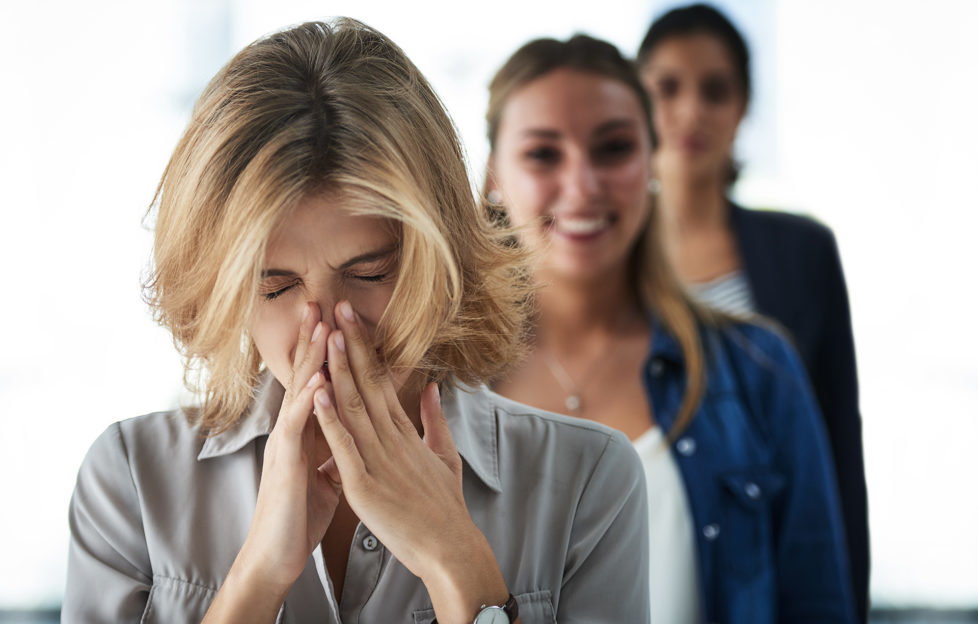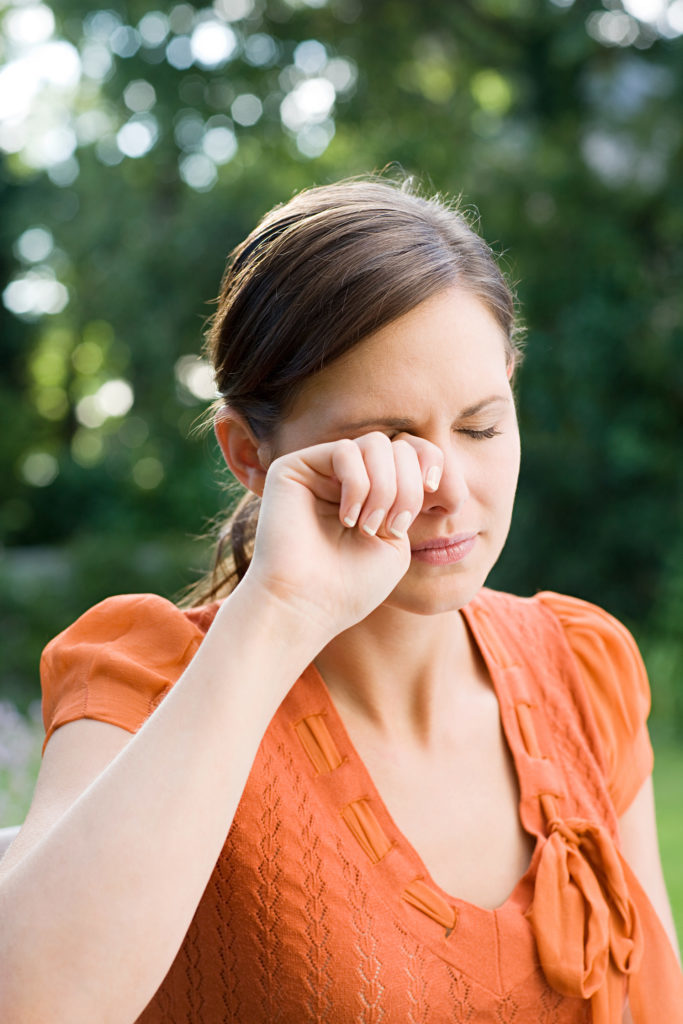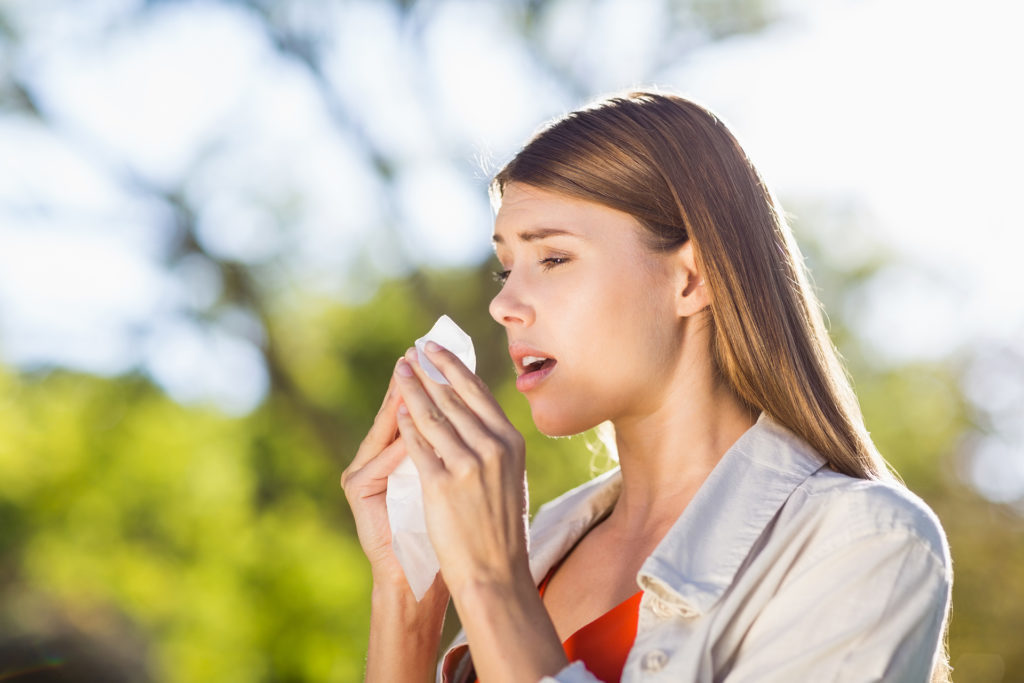Is Hay Fever Making You Feel Depressed?

By April Rose King, a TMS Technician at Smart TMS, the UK’s leading mental health clinic specialising in Transcranial Magnetic Stimulation.
How can hay fever impact your mental health?
Hay fever, also called Allergic Rhinitis, is the inflammation of the nasal pathway caused by an overreaction of the body’s immune system when it comes into contact with allergens, such as pollen. Common symptoms include a runny or blocked nose, tiredness, itchy throat and eyes and loss of smell, all of which can play a role in impacting a person’s mental health.
The immune system has more recently been linked to depression, particularly inflammation. Therefore, if your immune system is being affected by environmental triggers such as pollen, then there is a risk this could lead to mental health issues.
What symptoms of hay fever could impact your mental wellbeing?
Tiredness
Tiredness, often caused by a lack of and/or poor quality of sleep due to the uncomfortable symptoms of hay fever, can have an impact on a person’s mental capacity. If you have not rested well, it can cause problems in day-to-day life. Feeling tired can decrease the motivation to socialise, be active and affect the performance of a person’s work. All of which can ultimately lead to someone feeling low. If this is sustained over a long period of time it could potentially lead to depression.
Reduced Senses
The loss of smell from being bunged up has also been linked to depression. While we often do not realise how much we rely on our sense of smell, it is actually very important for our emotions and relationships. Therefore, the loss of smell can lead to poor relationships, because through smell we pick up on pheromones which subconsciously tell us whether or not we like a person. It can also stop us from enjoying an experience or having nostalgic moments. Think of a time you have walked past a smell and were immediately transported to a good memory or feeling. Not having a sense of smell can really impact on a person’s happiness.
Less Time Spent Socialising
Behavioural changes caused by hay fever can also lead to feelings of depression. Often people may stop socialising or doing the activities that bring them enjoyment as they are not feeling well, or do not want to expose themselves to the pollen outside! This can lead people becoming very isolated and having a low mood, which then can lead to depression if prolonged over a period of time.
How long do these symptoms generally last?
Everyone is different and will therefore be affected by hay fever at different times and durations throughout the year. The hay fever months tend to run from March to September and if you are someone who suffers badly from hay fever this is a very long time to not be feeling great! Therefore, this could possibly lead to depression and could potentially lead to a vicious cycle that lasts longer than the hay fever months, if not treated properly.
Does hay fever contribute to reverse/summer SAD?
Some experts suggest that allergies may also play a role in impacting people’s moods. It is theorised that some allergens can cause inflammation in the airways and, for vulnerable people, this could trigger depression. The increase of pollen (one of the most common allergens) in the spring and summer months could be what triggers Reverse SAD.
What are the main symptoms to look out for if someone is becoming depressed because of their hay fever?
Whatever the reason, signs of depression induced by hay fever to look out for are:
- Constantly cancelling plans
- Lack of motivation
- Constant low mood
- Not taking care of themselves
- Not getting pleasure in activities they normally would do, and being less smiley and laughing less
Linking more to hay fever, tiredness is an important symptom to look out for. As a precursor, take a break, maybe do some more chilled activities and relax! Don’t feel the pressure to always be doing something.
What should you do if you notice that your mood is being brought down by the symptoms of hay fever?
Always talk to someone, let people who care about you know how you are feeling and seek help if you need it. Discuss ways to alleviate the symptoms of hay fever with a GP or pharmacist as the removal of the hay fever symptoms may help you to start feeling better. If it has gone on for a particularly long period of time and you are starting to feel depressed, it is best to seek medical help, either from a GP or counsellor. The sooner you target the problem the better.
What are the treatment options for someone experiencing depression, either seasonal/allergy induced or long term?
If you are suffering from depression, no matter the reason, there are many options that can help. Talking therapies such as CBT (Cognitive Behavioural Therapy) and pharmacological therapies such as anti-depressants are two of the most common options that help treat depression. However, these are not suitable for everyone.
There is also a new NICE approved treatment available for depression called TMS Transcranial Magnetic Stimulation, which has been found to be highly effective. TMS uses focused magnetic pulses to stimulate areas of the brain which are underactive in people with depression. This gets these brain areas working properly again, allowing many patients to go into remission from their depression.
To find out more about hay fever . . .






